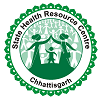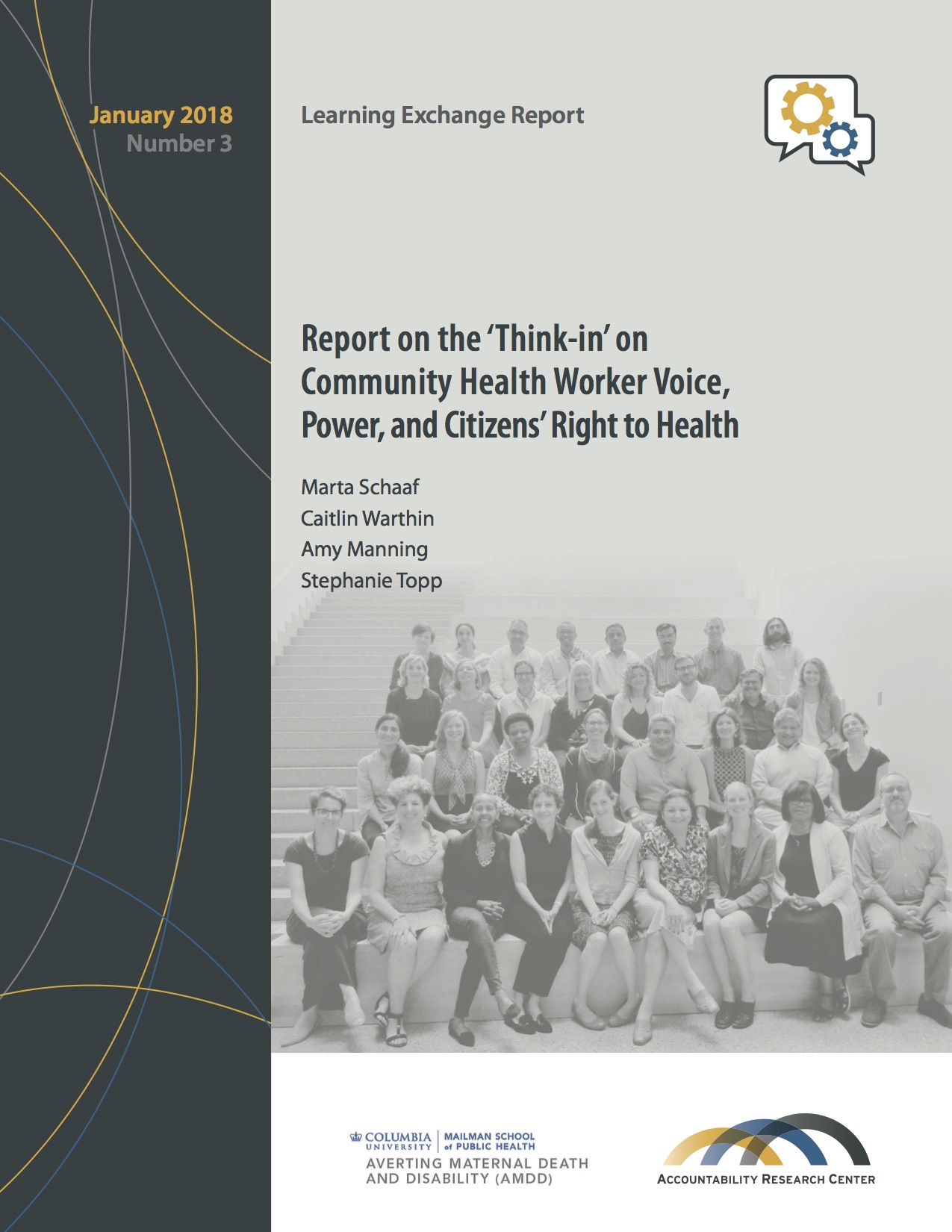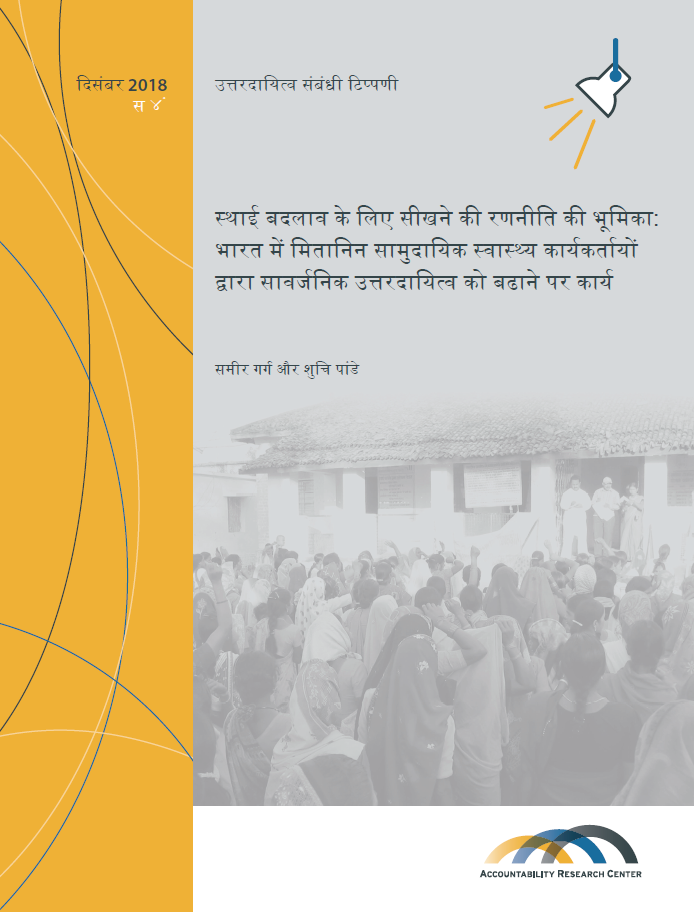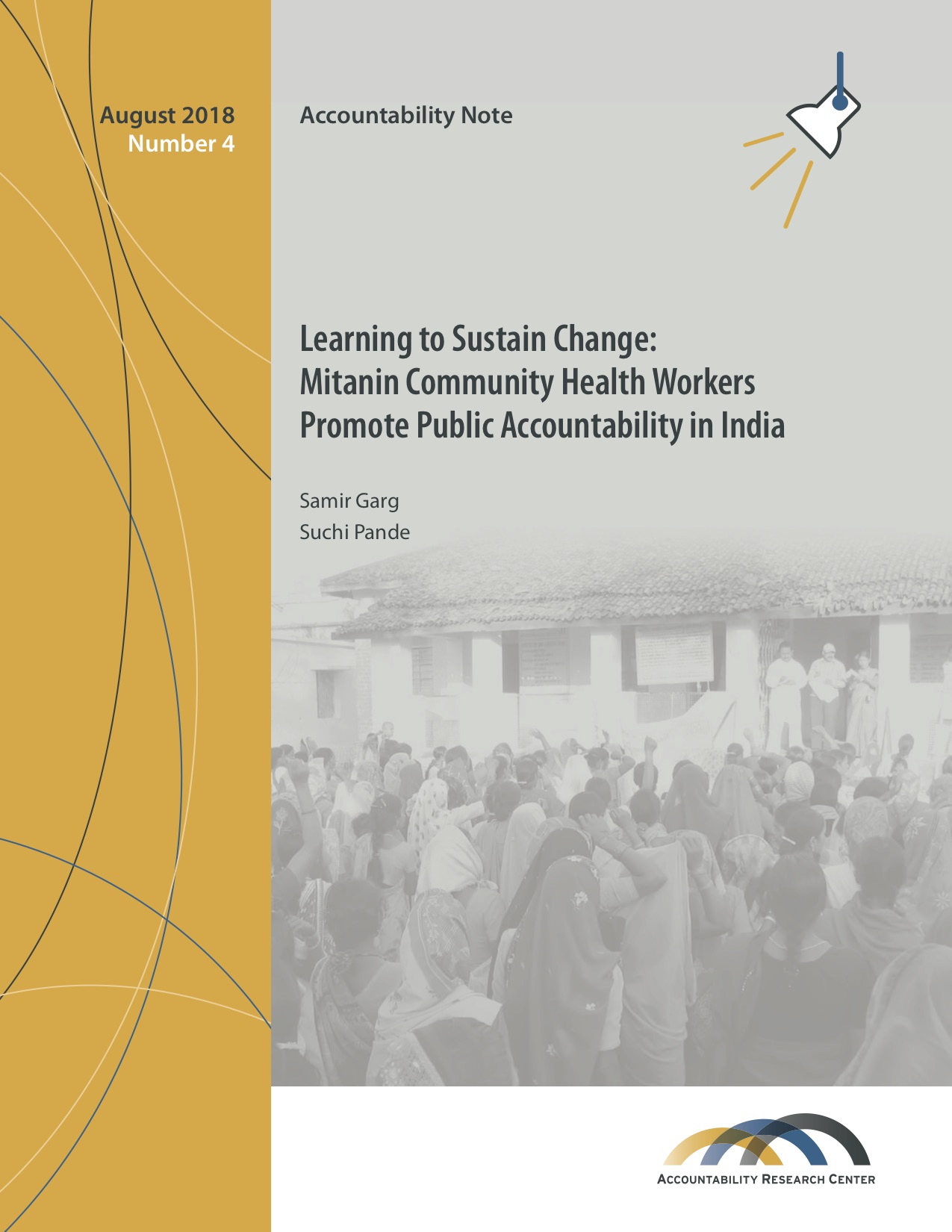
Learning to Sustain Change: Mitanin Community Health Workers Promote Public Accountability in India
Date: August 2018
Authors: Samir Garg and Suchi Pande
Publication type: Accountability Note
Published by: Accountability Research Center
Hindi Version: स्थाई बदलाव के लिए सीखने की रणनीति की भूमिका: भारत में मितानिन सामुदायिक स्वास्थ्य कार्यकर्तायों द्वारा सावर्जनिक उत्तरदायित्व को बढाने पर कार्य Can community health workers (CHWs) act as agents of change in enhancing the public accountability of government, despite being state-funded actors themselves? CHW programs worldwide face challenges in achieving public accountability. They face a tension between upward accountability (to higher officials within the health system) and public accountability (to the people who access and use public health services), especially with respect to their potential to play a role as agents of public accountability (Schaaf et al. 2018). This Accountability Note illustrates how the CHW program of the Chhattisgarh state government in central India— known as Mitanin—has, over time, developed a learning strategy that permits CHWs (Mitanins) to enable sustained action on public accountability, whilst simultaneously providing health services and education, and linking communities with government healthcare services. The main proposition of this note is that this evolving learning strategy enabled state and civil society actors to design institutions and processes appropriate for accountability. Our focus is on understanding how learning has lent the program the ability to evolve ways for continuously managing the essential tensions inherent in its design, and how this has been key to developing sustainable accountability strategies. We discuss examples of how the Mitanins’ evolving learning strategy has contributed to their efforts to ensure public accountability of the health system to people who use public health services. These examples are grouped under five propositions about the roles CHWs can play in sustainable public accountability: 1. Community health workers can simultaneously act as service providers and agents of public accountability. 2. Community health workers can set agendas for advocacy on issues of accountability by building virtuous cycles of action and learning. 3. Community health workers can build countervailing power at multiple levels. 4. Community health workers can demand both rights for communities, and better working conditions for themselves. 5. ‘Action-strategists’ can create an appropriate state-civil society organization to facilitate community health workers’ action. This note offers insights from the Mitanin experience on these five ways that CHWs can build and sustain accountability, and illustrates how the program has taken a movement-building approach to public health, and thus avoided becoming a narrow technocratic intervention.
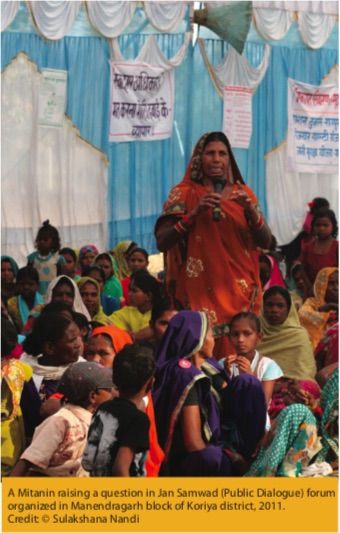
Samir Garg Samir Garg is a practitioner involved in the implementation of the Mitanin program. He has worked for 22 years on the public governance of health and food security in India, including as an Adviser to Supreme Court Commissioners on the Right to Food. He is currently working with State Health Resource Centre and pursuing his PhD in Health Systems Management at Tata Institute of Social Sciences, Mumbai. His areas of interest are community participation and management of health and other public systems. Suchi Pande Suchi Pande is a scholar in residence at the Accountability Research Center, School of International Service, American University. She is associated with India’s National Campaign for People’s Right to Information, and the Rajasthan-based Right to Information and Work campaigns. Suchi’s research focuses on social movements, state-society relations, public accountability, and social justice campaigns.

